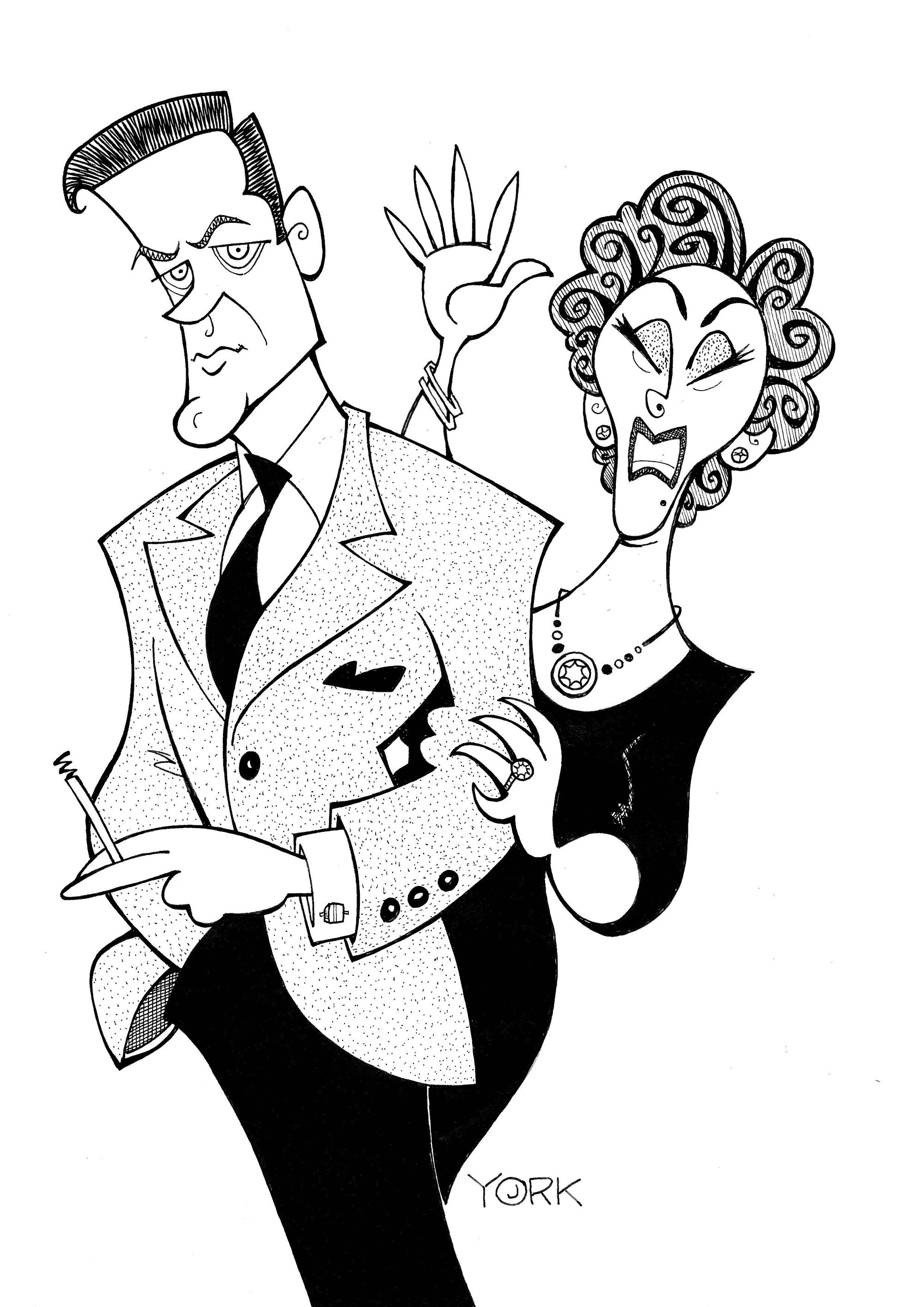
Beware the Temptations of Tinsel Town
Pity poor Joe Gillis. He just wanted to be a success in Hollywood. He wanted a little fame. Some fortune. And maybe a swimming pool.
Well, he got them alright, though not as a lauded screenwriter, as he had hoped. Nope, Gillis got them all through his lover, aging silent film queen, Norma Desmond. He became her boy-toy and constant companion until he had enough of her craziness and tried to leave. And then he got the swimming pool. Boy, did he get the swimming pool!
Hopefully, you recognized this description as the plot of Billy Wilder’s classic 1950 film Sunset Boulevard, starring William Holden and Gloria Swanson (pictured). It is a cautionary tale about the temptations of Tinsel Town and Faustian bargains, designed to be shortcuts to the top. It’s also a warning to screenwriters about the many siren songs in Hollywood.
Writing is a challenging profession. Facing a blank page that you need to fill, whether you’re writing a screenplay, novel, poem, song, article, or advertising copy, is intimidating. It’s a lot of time toiling in isolation, too, be it in a private room or the privacy of your thoughts. Such loneliness can make one hungry for connection or at least a decent distraction. Unfortunately, Hollywood has many distractions, some good, some not so good, some horrifying. Just look at the distractions that ruined the likes of Freddy Arbuckle, Robert Evans, or Lindsay Lohan, to name just three.
Hollywood is where the action is, but all that action isn’t healthy, despite the veneer of tan skin and tight bodies that the town specializes in. When vaulted playwright Neil Simon (The Odd Couple, Plaza Suite) moved from NY to L.A. in 1975, his fans thought that his brain would rot in what they perceived as a shallow town. Simon brushed off the criticisms, saying his brain merely grew ferns. Still, his work after the move started to lack the New Yorker edge he had, and more and more, his work softened. He relied on sweet nostalgia repeatedly in works like The Brighton Beach trilogy, Lost in Yonkers, and Laughter on the 23rd Floor.
Hollywood can have quite an effect, even in the sunniest of ways.
With all its glitz and glamour, Tinsel Town can be quite the scene: the parties, the gossip, the beaches, the Strip, the trades, what’s the hottest club, where’s the best star gazing for brunch … it can be quite a rush. And it’s a lot of drama. But it’s not the work.
Arguably, if the work isn’t its own reward, you’ve not chosen your career wisely, no matter what the profession. But it’s especially true in the writing profession where too often, the standard perks of working—going to an office each day, receiving regular paychecks every two weeks, getting health benefits—aren’t generally a part of the equation. That’s why it’s easy to gravitate towards the rush that a place like Tinsel Town offers.
Alec Baldwin once counseled actors on Inside the Actors Studio to choose showbiz as a profession because they love the work, as very few of those students in his audience would become famous. Instead, Baldwin advised them that being a working actor should be the goal. The same goes for writers. If you can make a living at writing, you’re already ahead.
And to Baldwin’s point about fame, ironic that it’s a four-letter word. So many in town want fame and fortune, like Gillis, and are willing to eschew the hard work for various shortcuts. After all, how many producers does one meet at parties and events with zero credits to their name? Additionally, how many young actors and actresses think that going to such parties and events is the real audition? (Hey, wasn’t that a song in La La Land?) And how many showbiz wannabes spend more time cultivating their social media feeds than finding work in the biz, even if it’s an internship or working on a crew?
Writers can at least point to what they’ve written as proof of how serious they are about making it. That’s why any screenwriting book or class will tell you to write a lot of scripts. It’s also good advice to take jobs where you’re paid to write, even if they’re unglamorous. If you can land a job at a paper or website, or ad agency, you’re already way ahead in the game. You’re making a living as a writer, and writing begets more writing.
Keep in mind, too, that screenwriting contests are not the end-all/be-all. Sure, placing in the finals or even winning gives you access, but how many writers out there have done just that and are still waiting for their phone to ring? The same with script reading services—there are great ones filled with experienced veterans who can help guide your script and teach you the tricks of the trade. Still, it doesn’t necessarily mean your script will find immediate success as good as it is. Better to use such services to learn, rewrite, and carry such tactics with you as you tackle your next screenplay.
Finally, a writer must avoid writing what the town tells them will sell. What sold last year is not a blueprint for success. Sure, trends can be followed, but if you’re writing what others sold, or what you think will sell, it’s probably not going to be a sample of your best efforts or truest passion.
It comes down to perspective and focus. Enjoy Hollywood, but don’t become enamored with it. Beware the glitz and glamour—it’s a shiny bauble and a shallow distraction. Better to keep your eyes on the prize: become a writer, sell your work, and make a living at it. Those are the rewards. And if such success comes with a pool, all the better.
*Feature Image: William Holden and Gloria Swanson by Jeff York